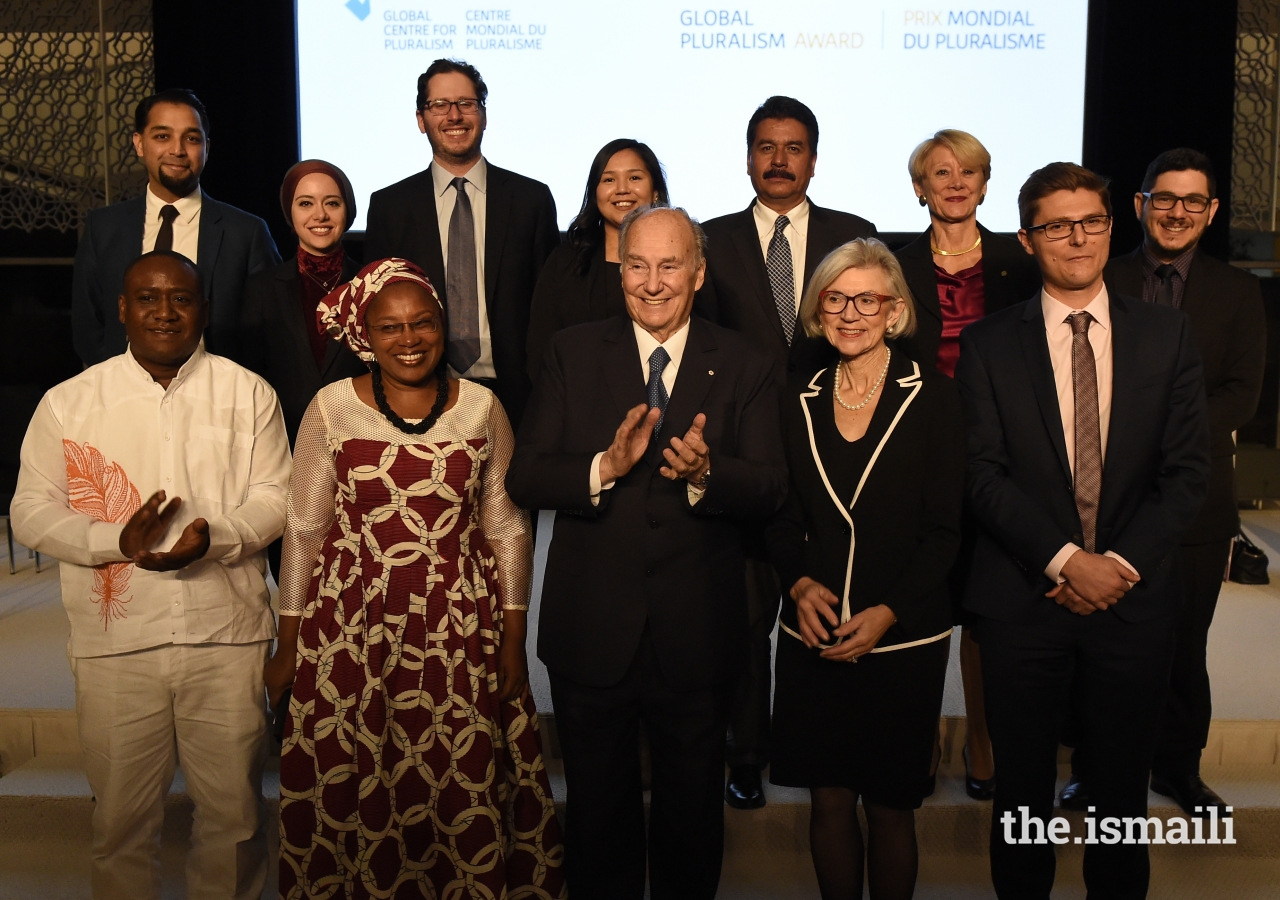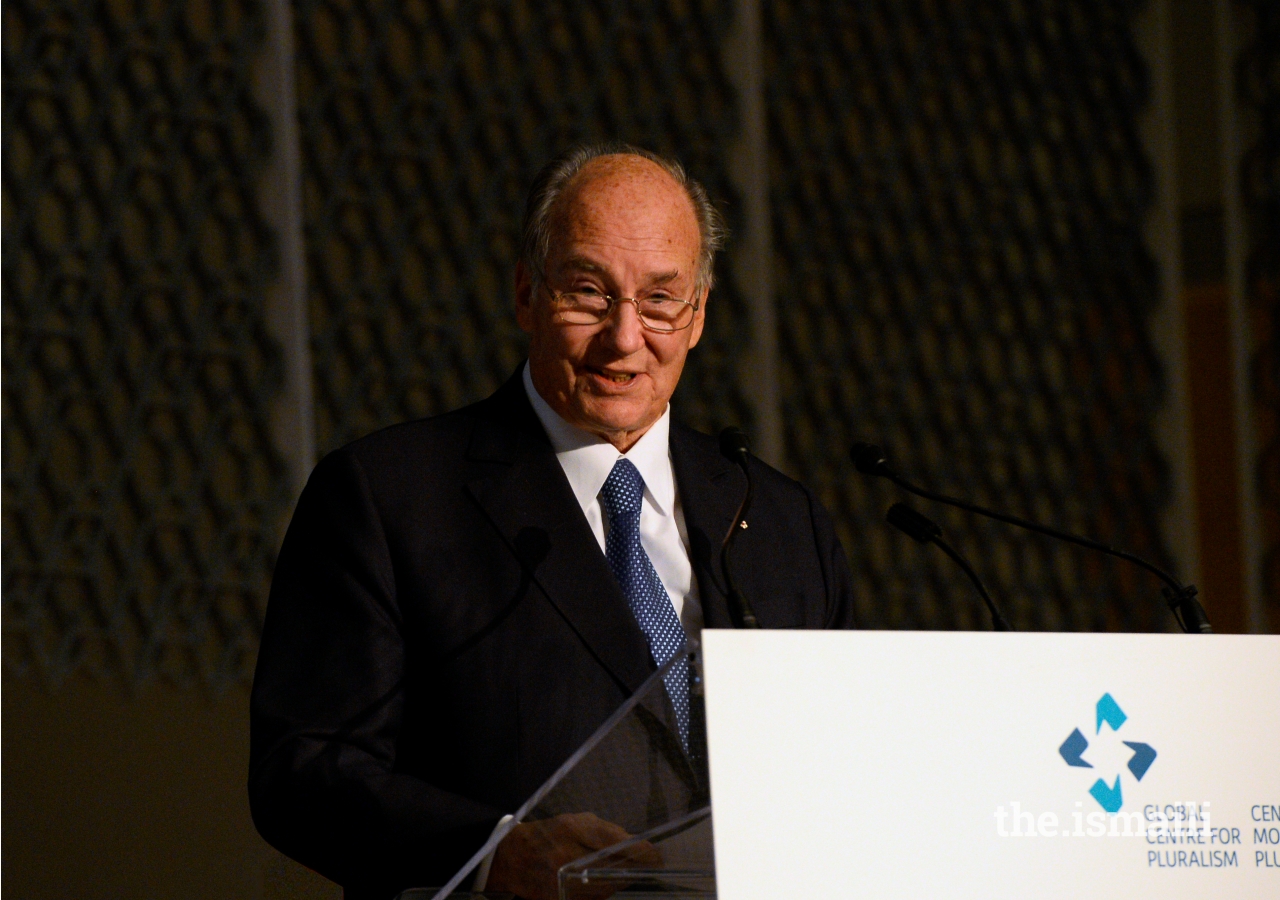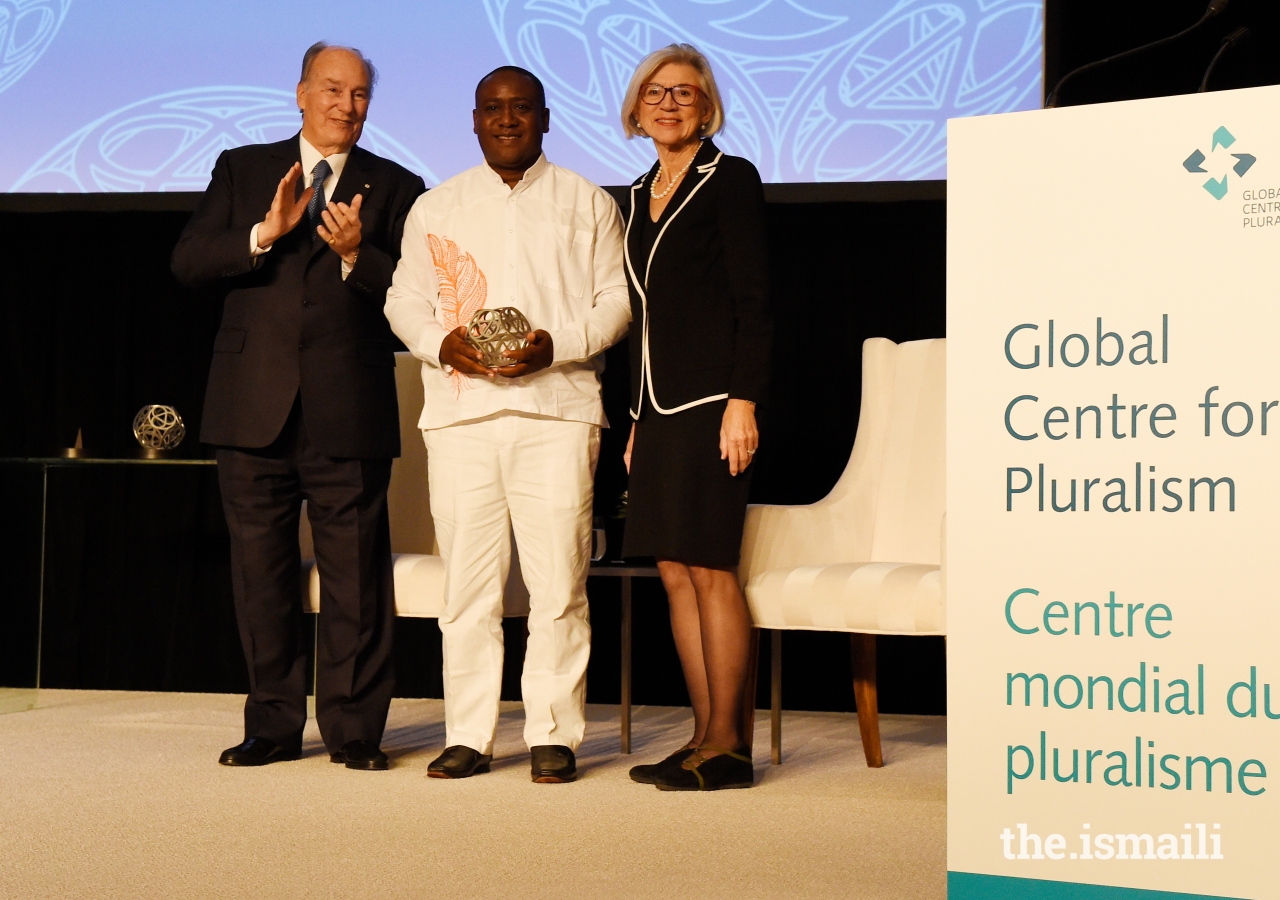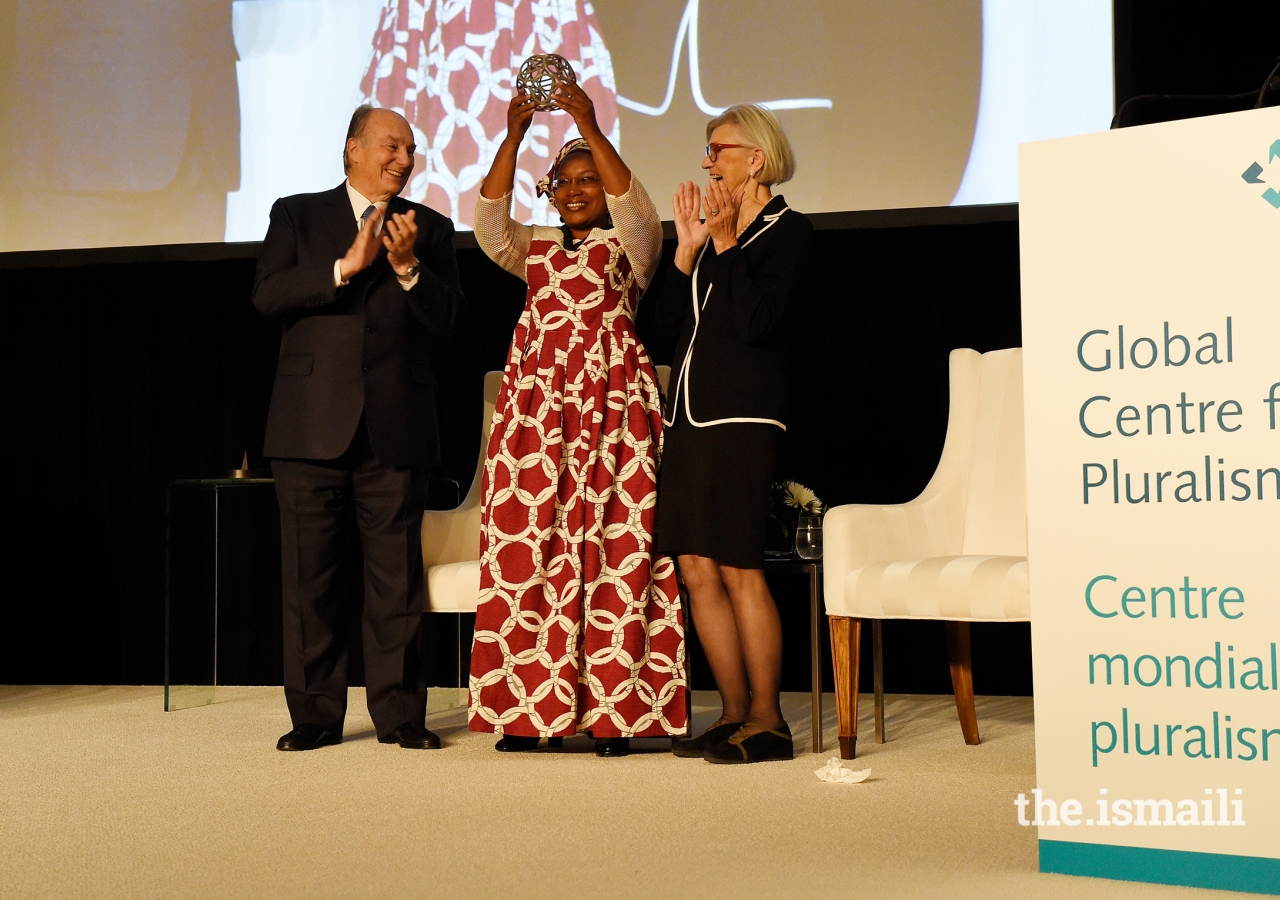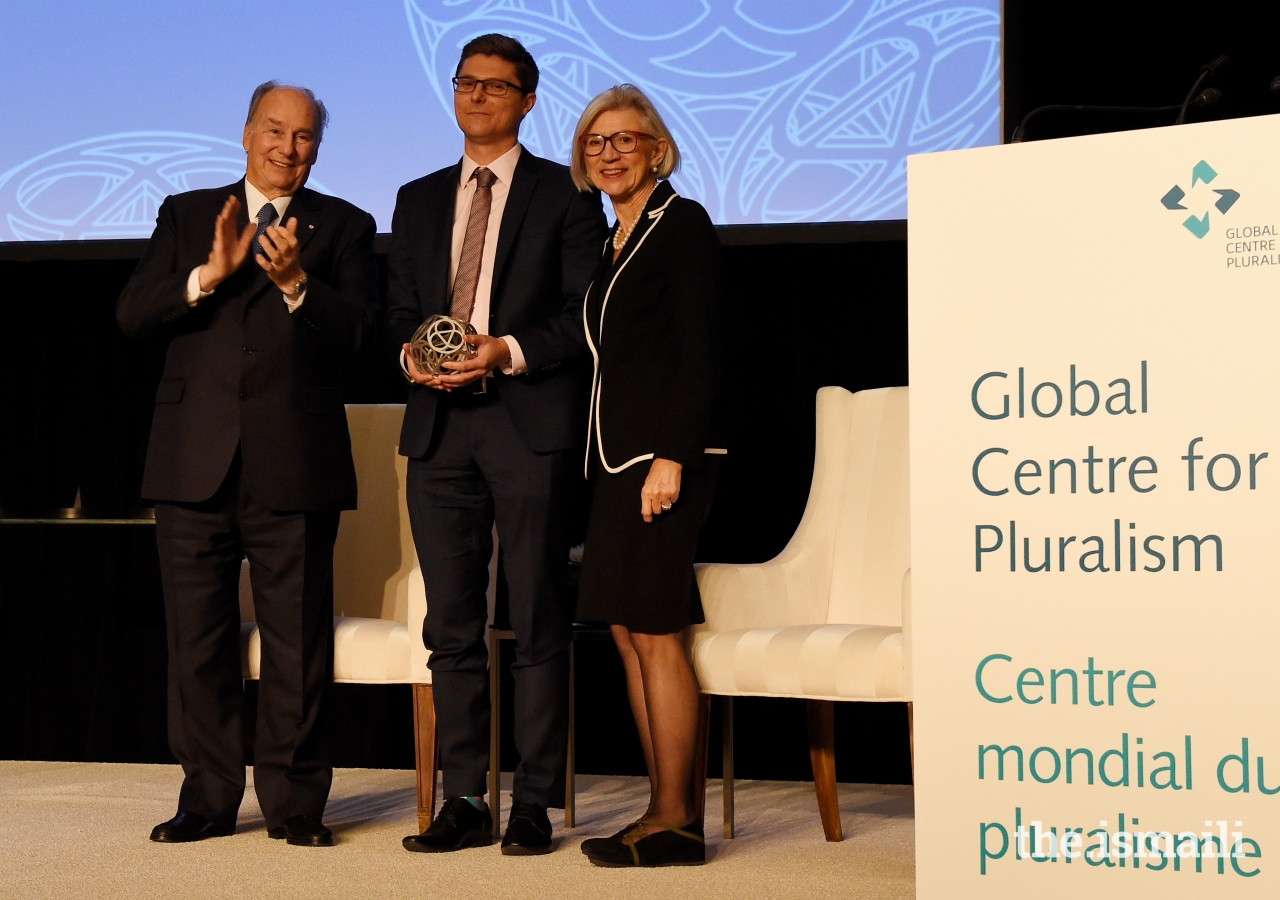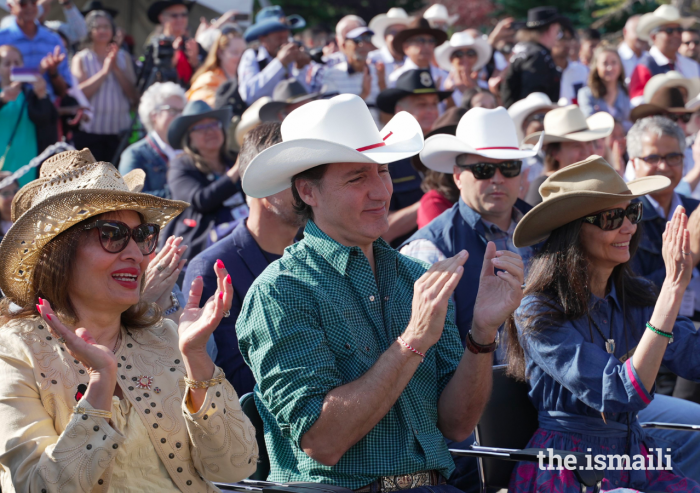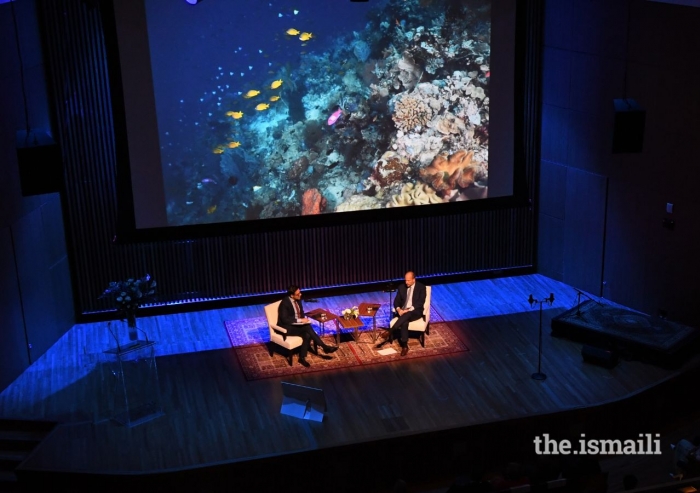Mawlana Hazar Imam and the Rt Honourable Beverley McLachlin, Chief Justice of Canada, presented the Award at a ceremony held at the Delegation of the Ismaili Imamat, in Ottawa, Canada.
Of the 230 nominations received from over 43 countries, the international jury chaired by former Canadian Prime Minister the Rt Honourable Joe Clark, selected three recipients and seven honorable mentions to receive the award — celebrating a diversity of geographies as well as approaches to promoting pluralism in their home countries.
In his remarks, Hazar Imam noted, “Some people make the mistake of thinking that pluralism requires them to dilute or de-emphasise their own distinctive identities. That is not true. What it requires is to ensure that one’s identity is strong enough to engage confidently with those of other identities as we all walk together along the road to a better world.”
Each award winner has approached resolving disputes in a diverse manner, focusing on different issues.
Leyner Palacios Asprilla was recognised for his work as a founder of the Committee for the Rights of Bojayá Victims. During Colombia's civil war between the government in Bogotá and the Revolutionary Armed Forces of Colombia (FARC), individuals in rural areas, often belonging to one of Colombia's less recognised ethnic groups, bore the brunt of the violence between the two sides. Palacios Asprilla founded his organisation to ensure that the voices of the victims of civil war were heard as the two sides negotiated a peace agreement in the capital.
Alice Wairimu Nderitu was acknowledged for her extraordinary work bringing communities in Kenya and Nigeria together after long ethnic and religious conflicts. Nderitu's process of facilitating mediation ensured that each group stayed true to their own values throughout the negotiation. Nderitu sought sustainable peace, which she said requires acceptance of differences, as opposed to superficial unity.
The third award recipient, Daniel Webb, received recognition for his work representing asylum seekers in Australia detained on the small islands of Nauru and Manus. Through his work, Webb seeks to ensure that Australia treats incoming refugees and asylum seekers humanely. In accepting his award, Webb noted that pluralism requires people to "value and respect difference", which in turn requires the understanding that "all people... deserve basic dignity and respect."
In addition to the three award recipients, seven organisations received honourable mentions for work that ranged from filling gaps in humanitarian relief to helping indigenous communities tell their stories, to the innovative use of technology to build empathy and improve communication.
As Mawlana Hazar Imam noted in his remarks, these examples are an essential aspect of the promotion of pluralism. "As we walk together on that road [to a better world], the example set by others can be a powerful source of inspiration."

